-
What to Do to Prevent Eye Injuries
Eye diseases like macular degeneration aren’t the only problems that can rob a person of his or her healthy vision. Injuries to the eye can occur in mere moments, but they can have life-changing consequences. Residents of the Chicago area can get some eye care tips from their ophthalmologist. Even when individuals take precautions to protect their vision, accidents can occur from time to time. If you’ve suffered an eye injury, seek immediate medical attention.
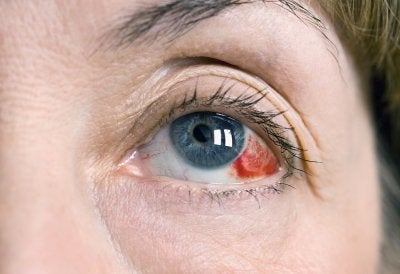
At Work
Work-related eye injuries are entirely too common. When a job exposes employees to hazardous chemicals, airborne debris, and other hazards, employers are supposed to provide proper protective gear, including safety goggles. However, it’s incumbent upon the employee to ensure that he or she follows safety guidelines and wears these goggles as needed. Adequate safety goggles are those that feature side shields. Other protective gear can include face shields , full-face respirators, welding helmets, work screens, and machine guarding. Individuals who wear eye glasses, rather than contact lenses, can consult an eye care professional about getting prescription safety goggles.
At Home
The workplace and the home are the two major places in which eye injuries occur. Eye doctors recommend taking precautions inside and outside the home to protect one’s eyes. Inside the home, some common hazards include cleaning chemicals, grease splatters, certain children’s toys such as projectiles, and tripping hazards. Champagne bottles are another potential hazard. When opening a champagne bottle, always point it at a 45-degree angle away from yourself and everyone else. After you’ve removed the wire hood, place a towel over the entire top of the bottle before twisting the cork out. Outside the home, yard work is often the greatest hazard for eye health. Before mowing the yard, walk over the entire area, removing branches and other potential projectiles. Do not allow children outdoors while mowing or doing other yardwork with power tools. Remember to wear safety goggles.
At the Gym
Thousands of people suffer from sports-related eye injuries each year. Some of those injuries occurred because the patients relied on their regular eye glasses to provide adequate protection. Safety goggles ought to be worn before engaging in certain sports, such as racquetball and basketball.
-
What You Should Know About Glaucoma
Glaucoma is a chronic eye disease that can lead to blindness . It involves damage inflicted on the optic nerve. Although your eye doctor cannot cure glaucoma, he or she can help you learn how to manage it properly. Early detection is critical, so schedule regular eye exams at an optical center in Chicago. Your eye doctor can check for the early warning signs of glaucoma by performing a dilated eye exam, which checks for damage to the optic nerve. The ophthalmologist can also check the pressure in your eye and assess your visual field.
When you visit the optical center, be sure to tell your eye doctor about any changes in your vision. Glaucoma typically causes patients to lose “patches” of vision such as peripheral vision. If you are diagnosed with glaucoma, it’s likely that your ophthalmologist will prescribe medicated eye drops to lower the pressure within your eye and prevent further damage. Some people with glaucoma may need laser surgery to manage intraocular pressure.
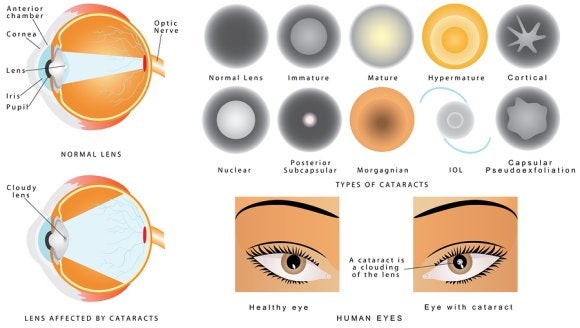
-
Protect Your Eyes in the Sun
You probably already know that wearing sunscreen while outdoors can help protect you from skin cancer. But did you know that the ultraviolet (UV) rays from the sun can also damage your eyes? In fact, your eye doctor may be more likely to diagnose you with age-related macular degeneration if you have excessive, unprotected sun exposure. You might also be more likely to undergo cataract surgery at a clinic in Chicago if you neglect to protect your eyes.
Watch this video and consult your eye doctor for some helpful eye care hints. This video recommends wearing sunglasses every time you go outdoors. Look for shades labeled “UV 400” or “100 percent UV protection.” Pair your sunglasses with a hat and recognize that sun damage can occur even on cloudy and winter days.
-
Spotting Eye Problems in Children
Children need to see an ophthalmologist at a much younger age than many parents realize. The American Optometric Association (AOA) recommends scheduling a trip to the ophthalmologist when an infant has reached six months of age. The next visits with an eye doctor should be scheduled at about the third and fifth birthdays. However, if you notice any potential signs of eye problems in your child, you can schedule a comprehensive eye exam with an ophthalmologist in Chicago at any time.
Appearance
Sometimes, eye problems that occur in children involve visible changes. If your child’s eyes appear to be misaligned, a trip to the ophthalmologist is in order. This could be a condition known as strabismus, or crossed eyes, which requires early treatment. Other visible changes to the eyes can include redness, swelling, and crusting. These are possible signs of an eye infection such as conjunctivitis.
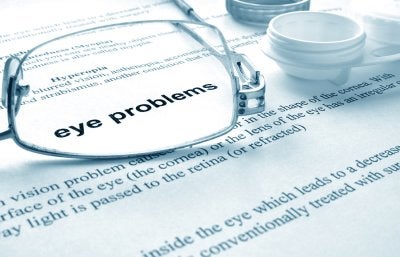
Behavior
If your child is nearsighted or farsighted, he or she may display some atypical behaviors. Your child may hold books or pictures unusually close to or far away from his or her head. You might notice that your child frequently rubs his or her eyes, especially while trying to concentrate on something. He or she may consistently sit too close to the TV. Some children might even close or cover one eye while reading or watching TV. This last symptom may indicate a binocular vision problem.
Academic Progress
Many children are diagnosed with nearsightedness after suffering a setback in academic performance. If your child has suddenly begun to receive poor grades or his or her teacher has noted that your child has not been paying attention in class, it could be time to schedule an eye exam. Kids who cannot see well have trouble reading instructions on the chalkboard. They might have trouble using computers or performing close work. In these cases, vision correction via eyeglasses may be all that is needed to get kids back on track in school.
Symptoms
If your child is old enough to articulate the problems he or she is experiencing, then you may hear him or her complain of dizziness, headaches, or nausea after reading or using a computer. These symptoms may indicate refractive errors. If your child experiences other types of vision problems, he or she may complain of having itchy, painful, or burning eyes. Fortunately, an ophthalmologist can help your child see clearly again.
-
What Is Strabismus?
More commonly referred to as “crossed eyes,” strabismus is a disorder in which the eyes are out of alignment with each other. In other words, they do not focus on the same object at the same time. Strabismus is often present at birth, although it can develop in adults. If you or your child has the appearance of being cross-eyed, it’s important to visit an ophthalmologist at an ophthalmology practice in Chicago. An ophthalmologist can help you understand the condition, including its possible causes such as cerebral palsy, traumatic brain injury (TBI), stroke, or eye injuries.
For a child with strabismus, vision correction often involves placing an eyepatch over the stronger eye to force the weaker eye to become stronger. Adults with mild strabismus may benefit from eye muscle exercises and eyeglasses. However, for a child or for an adult, eye muscle surgery may be needed in severe cases and for symptoms that are not sufficiently addressed through conservative treatments.
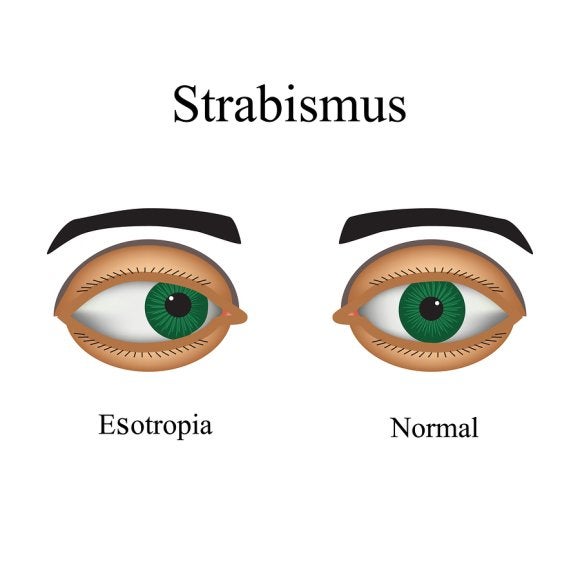
-
Protecting Your Eyes from Fireworks
Fireworks are an iconic part of summer. Unfortunately, fireworks are as dangerous as they are beautiful. Every year, thousands of patients are seen in emergency rooms across the country because of injuries caused by fireworks. Often, these injuries involve the face. Because eye injuries, other catastrophic injuries, and death can occur from the misuse of fireworks, June has been declared National Fireworks Safety Month. This awareness month, which actually runs through the Fourth of July, was designed to help consumers prevent fireworks injuries. If you plan to ignite fireworks this summer and live in Chicago, follow some basic eye care tips. An ophthalmologist at your local ophthalmology practice can work wonders with modern medical technology, but eye injuries caused by fireworks can cause permanent damage and vision loss.
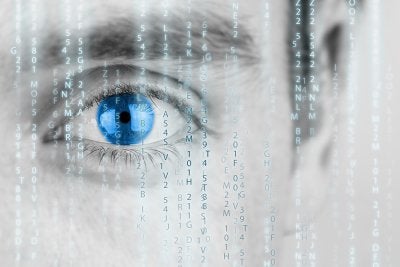
Reconsidering the Use of Fireworks at Home
The only safe way to enjoy fireworks is to view a show put together by professionals. Enjoy the fireworks display from behind the safety barriers at a distance of at least 500 feet.
Using Appropriate Safety Gear
If you do plan to use fireworks at home, check your local laws first to be sure they are legal in your area. Then, purchase safety glasses for everyone who will be handling the fireworks. Your ophthalmologist can recommend an approved type of safety glasses. Keep a bucket of water nearby and have access to a garden hose.
Igniting Fireworks as Safely as Possible
Never allow children to ignite, handle, or come near fireworks. This includes sparklers, which can burn at about 2,000 degrees Fahrenheit. This temperature is hot enough to melt certain metals. When an adult is ready to light the fuse, he or she should avoid placing any part of the body over the fireworks device. Instead, the adult should hold the lighter out at arm’s length away from the body to light the device. Immediately upon ignition, the adult should back away quickly. Alcohol should never be consumed before or during the handling of fireworks. Furthermore, adults should never attempt to re-light a “dud” firework. Instead, wait 20 minutes and then soak it in water.
-
Practicing Good Eye Health
Good eye health is essential for your quality of life. Unfortunately, many people take their vision for granted until they experience problems. One of the best ways to promote good eye health is to make an appointment with an eye doctor each year for an exam. When you visit the ophthalmology practice in Chicago, the ophthalmologist will do much more than update your vision correction prescription as needed.
As you’ll learn when you watch this video, your ophthalmologist will also check for the early signs of eye health problems such as macular degeneration, diabetic retinopathy, and glaucoma. These are the three leading causes of vision loss in the U.S. The eye doctor in this video explains how these problems develop. If you’re concerned about your risk of eye diseases, talk to your ophthalmologist about ways of managing your risk.
-
What Is Dry Eye?
Dry eye is extremely uncomfortable, and when left untreated, can lead to chronic pain, eye ulcers, and corneal scarring. See your eye doctor for dry eye treatment in Chicago to prevent long-term complications and chronic discomfort.
Dry eye occurs when the eye either doesn’t produce an adequate amount of tears or produces tears that evaporate too quickly. This causes inflammation that can make it difficult to look at a computer screen, watch television, or read. With dry eye, patients experience stinging, burning, the feeling of sand in the eyes, redness, inability to cry, and decreased tolerance for dry environments. There are many different causes, ranging from medications to certain eye diseases.
There are a number of different ways your doctor can treat dry eye. Sometimes, switching medications can be the solution. Other patients benefit from eye drops and nutritional supplements. In rare cases, eye surgery to prevent premature tear evaporation could be helpful. Your eye doctor will devise a dry eye treatment plan based on the root cause of your symptoms.
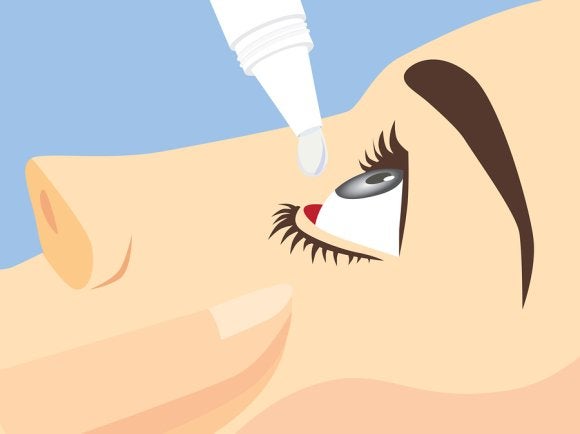
-
Recognizing Healthy Vision Month
Every May, the National Eye Institute celebrates Healthy Vision Month to remind people of all ages to stop and pay attention to their eye health. After all, while you may see your doctor for an annual physical, many people only see an eye doctor when they have an issue, which means you could be missing out on important preventative care. Take the time now to make an appointment with your eye doctor in Chicago, and focus on your eye health with these important tips.
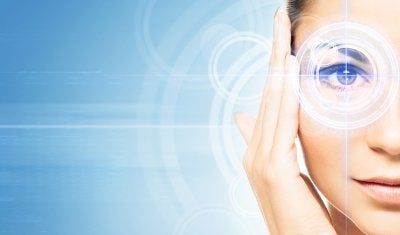
Find Out Your Family History
Did you know that many eye diseases are hereditary? Understanding your family’s eye health history will help you and your eye doctor determine which diseases could happen to you. Because many conditions that cause blindness run in families, knowing your risks can help your eye doctor make important decisions about screening tests and treatments that are right for you.
Live an Eye-Healthy Lifestyle
Many of your everyday habits can impact your eye health. Smoking can cause a number of different eye problems, including cataracts and macular degeneration, so don’t pick it up, or ask your doctor for help quitting if you are currently a smoker. Eat a healthy diet with plenty of vitamin-rich foods. If you have a chronic condition that impacts your eyes, like diabetes, follow your treatment plan closely. Wear sunglasses to avoid eye damage from UV exposure, and wear protective eyewear when necessary on the job and in sports.
Get Regular Eye Exams
Many eye conditions don’t have symptoms in their early stages, which means you could miss an important window of treatment opportunity. Your eye doctor can diagnose and treat these conditions by identifying them during an annual eye exam. Be sure to have a dilated eye exam when recommended by your doctor. Dilated exams let your eye doctor see the back of your eye to better evaluate your eye health. Eye exams are also important for verifying the effectiveness of your current vision correction treatments, like eyeglasses, and make adjustments to your prescriptions as needed.
-
Eating for Eye Health
As your eye doctor can tell you, your diet can affect your vision in a number of ways, but if you have diabetes, the foods you eat take on even more significance. Talk to your eye doctor in Chicago about the link between blood sugar control and vision health. This video explains more.
High blood sugar can cause damage to the blood vessels in your eyes that can lead to blindness. By controlling the amount of carbohydrates in your diet, you can better control your blood sugar level and reduce the chances of eye damage. When you visit your eye doctor, he or she will perform an exam to check for diabetic eye damage and can offer eye care tips, including dietary advice, to better protect your vision.
